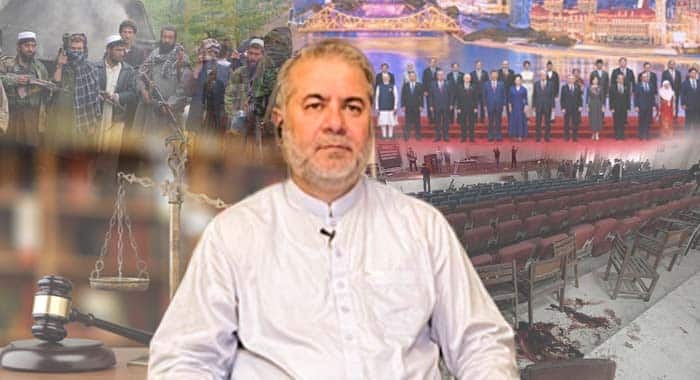The debate on Pakistan’s security crisis inevitably circles back to a single question: why, after decades of bloodshed and sacrifice, does terrorism continue to haunt our society? The answer, in my view, lies in the weakness of our criminal justice system and the failure to implement the very reforms we promised ourselves after the Army Public School (APS) tragedy in 2014.
When the nation was still mourning the massacre of our children in Peshawar, the National Action Plan was unveiled with much fanfare. It promised judicial reforms, a stronger prosecution system, and speedy justice. Eleven years have passed since then, but the reality is sobering: those responsible for APS, GHQ, Bacha Khan University, and countless other attacks have not faced meaningful punishment. The martyrs’ families, the public, and our security forces who risk their lives daily have yet to see true justice delivered.
A War Imposed, A Burden Endured
It is important to remember that Pakistan’s war against terrorism was not of its own making. The conflict originated in Afghanistan and spilled over into our borders as Pakistan became an ally of U.S. forces. Yet, while foreign troops have long since withdrawn, Pakistan continues to pay the heaviest price. More than 80,000 lives have been lost, billions of dollars in economic damage sustained, and no sector of society has been spared—from schools and universities to hospitals, press clubs, and even our military headquarters.
Despite this staggering toll, the fight against terror remains unresolved. Why? Because those captured or accused of orchestrating these attacks are left languishing in jails, their cases endlessly delayed in courts. The police and counterterrorism departments can arrest suspects or confront them in battle, but punishment lies with the courts—and our courts have failed to deliver.
The Problem of Justice
Pakistan’s judicial system is riddled with loopholes. Conviction rates, especially in Khyber Pakhtunkhwa, the province most scarred by terrorism, remain abysmally low. People are understandably afraid to testify, knowing militants can trace their families and homes. Trials are dragged across multiple tiers of courts—sessions, high courts, and then the Supreme Court, until justice is denied through endless delay.
Even those sentenced to death often escape punishment; many have grown old in prison, their sentences never carried out. Meanwhile, the state continues to spend money feeding and housing convicted terrorists, effectively rewarding their defiance of law. The message to society is clear: the law is toothless, and those who commit the worst crimes have nothing to fear.
Regional Threats and International Blind Spots
Russia recently warned that Afghanistan hosts more than 20 active terrorist organizations with some 23,000 fighters. Yet, in my view, this number underestimates the reality. Groups like the Tehreek-e-Taliban Pakistan (TTP) alone command upwards of 35,000 fighters. The threat is not confined to Afghanistan’s borders; it spills into Pakistan, Iran, China, and Central Asia. And yet, curiously, when Russia outlined the risks, Pakistan was not explicitly mentioned, even though we remain the most frequent target.
Prime Minister Shahbaz Sharif rightly highlighted at the Shanghai Cooperation Organization (SCO) summit that terrorism in Khyber Pakhtunkhwa and Balochistan is being fueled by foreign funding. These external hands exploit our internal weaknesses. Pakistan has repeatedly exposed evidence of hostile intelligence networks, particularly India’s sponsorship of militancy, most notably when a serving Indian naval officer was arrested in Balochistan. Yet, international actors often turn a blind eye to our sacrifices.
Fighting Pakistan’s Case
In international forums, Pakistan must continue to speak firmly and clearly. The world knows who we are pointing toward when we talk of foreign sponsorship of terrorism. Pakistan has presented its case with determination, particularly on Kashmir, where Indian atrocities and militant funding networks were laid bare before global audiences. This diplomatic struggle must go hand-in-hand with internal reform.
The Way Forward
The war on terror cannot be won on the battlefield alone. Unless terrorists are tried, convicted, and punished swiftly, the cycle of violence will continue. Judicial reforms promised under the National Action Plan must no longer be postponed. Specialized anti-terror courts with security guarantees for judges and witnesses, digitized trials, and strict timelines for appeals are necessary to restore faith in justice.
At the same time, international allies must recognize that Pakistan’s fight is not just its own. This war was imposed on us, and we continue to bleed for global peace. The world cannot afford to let Pakistan fight alone while terrorist networks in Afghanistan regroup and expand.
Until justice is delivered and regional cooperation strengthened, Pakistan’s war on terror will remain incomplete, a battle half-fought, and a wound that refuses to heal.





